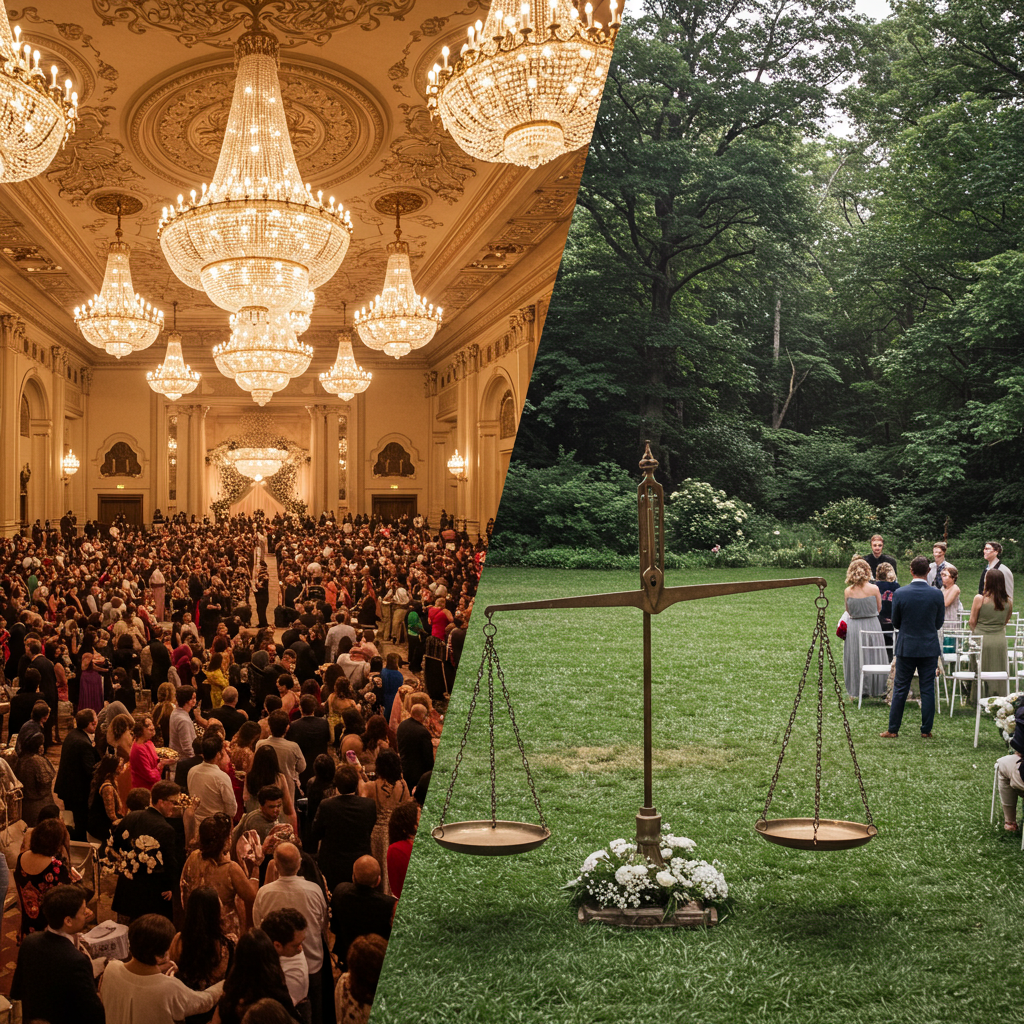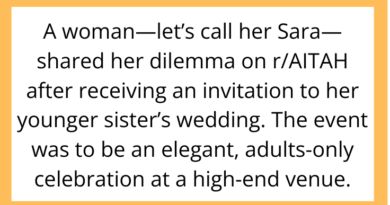AITAH for Setting Boundaries with My Parents Over My Wedding Plans?
Weddings are meant to be joyful celebrations of love, but when family expectations collide with personal values, conflicts can quickly spiral out of control. One of the most discussed topics on the r/AITAH subreddit is whether setting firm boundaries about a wedding makes you inconsiderate — or simply self-respecting.
Today, we’ll explore a real-life scenario from r/AITAH where a couple’s desire for an intimate ceremony clashed with their parents’ expectations. We’ll break down the issues, look at the community’s judgments, and reflect on how you can navigate similar situations gracefully.
If you’ve ever wondered whether asserting your wishes makes you the “bad guy,” this post will help you see the bigger picture.
The Background of the Conflict

A user shared their story about planning a small wedding with only close friends and immediate family. Their parents, however, envisioned a traditional big event with hundreds of guests.
The poster explained that large crowds made them anxious and that their budget simply wouldn’t allow for an extravagant celebration. Despite repeated explanations, the parents insisted they were being selfish and disrespectful to the extended family.
After several heated discussions, the couple decided to proceed with their smaller ceremony, leading the parents to threaten not to attend. Feeling torn between their mental well-being and their parents’ approval, the poster turned to r/AITAH to ask: Am I the asshole for sticking to my wedding plans?
Why Weddings Often Spark AITAH Debates

Weddings are unique because they blend cultural traditions, generational values, and personal priorities. Many AITAH posts center around these events because:
-
Family Expectations: Parents often feel entitled to have a say, especially if they’re contributing financially.
-
Cultural Pressure: In some cultures, big weddings symbolize respect and success.
-
Personal Values: Couples may prioritize intimacy and simplicity.
-
Financial Constraints: Limited budgets can quickly become contentious.
This tension is fertile ground for conflict — and judgment.
Perspectives from the r/AITAH Community

When this post went live, thousands of users weighed in with their verdicts. The majority agreed that the couple was not the asshole for setting boundaries. Here’s why:
-
Autonomy: A wedding is ultimately about the couple. No one else is entitled to dictate the guest list.
-
Financial Responsibility: If you’re paying for it, you have every right to decide how your money is spent.
-
Mental Health: Prioritizing emotional well-being is not selfish.
A minority argued that the couple could have compromised by holding a separate reception for extended family. However, most felt that standing firm was a reasonable choice.
How to Navigate Similar Family Conflicts

If you’re in a similar situation, consider these strategies:
Communicate Early and Clearly
Explain your vision well in advance. Share details about why you prefer a certain approach and how it aligns with your values.
Be Willing to Compromise — But Know Your Limits
Sometimes small adjustments can ease tensions without sacrificing your principles. However, know what you are and aren’t willing to negotiate.
Set Financial Boundaries
If family members are funding part of the event, clarify expectations from the start. Financial support should never come with hidden strings attached.
Focus on Empathy
Try to understand why your parents feel strongly. For them, a big wedding might symbolize love and community. Validating their feelings can help defuse anger.
Why Setting Boundaries Is Not Being an Asshole

One of the most valuable lessons from r/AITAH is that setting boundaries isn’t inherently rude or selfish. It’s often the healthiest thing you can do for yourself and your relationships.
Boundaries protect your mental health, finances, and values. When delivered respectfully and clearly, they can actually strengthen trust over time.
Other Common Wedding Conflicts Seen on r/AITAH
To put things in perspective, here are a few examples of wedding-related AITAH dilemmas:
-
Banning children from the ceremony — sparking outrage among relatives.
-
Refusing to have a religious ceremony despite parents’ wishes.
-
Choosing a destination wedding and limiting the guest list.
-
Asking for no gifts or specific contributions instead of traditional presents.
Each of these scenarios brings up the same core question: When do your preferences cross the line into disrespect? The answer usually depends on how thoughtfully you communicate and whether you show genuine empathy for others’ feelings.
Final Thoughts

At the end of the day, only you and your partner can decide what feels right for your wedding. While it’s important to be considerate of your family, you are not obligated to sacrifice your comfort, finances, or happiness to please everyone.



